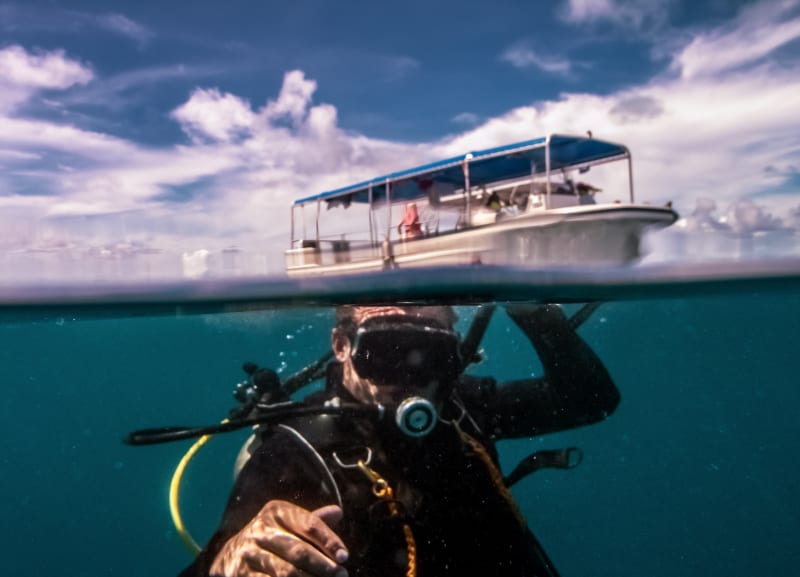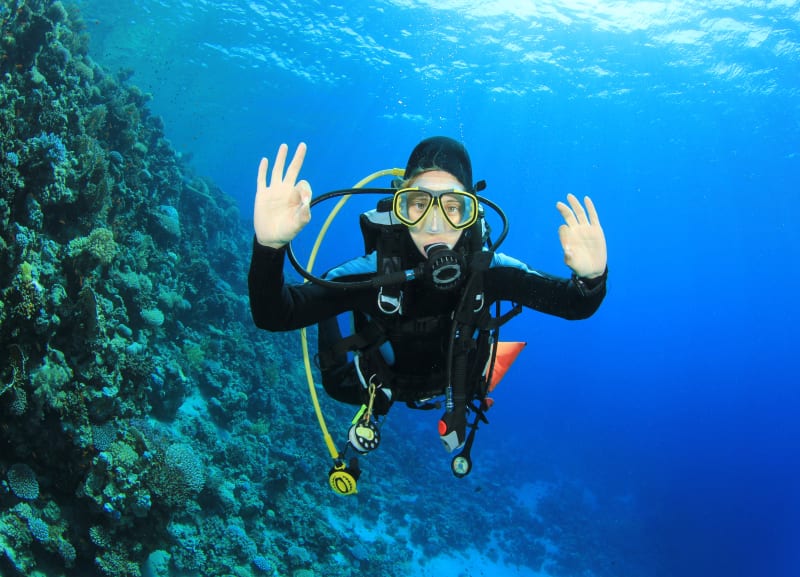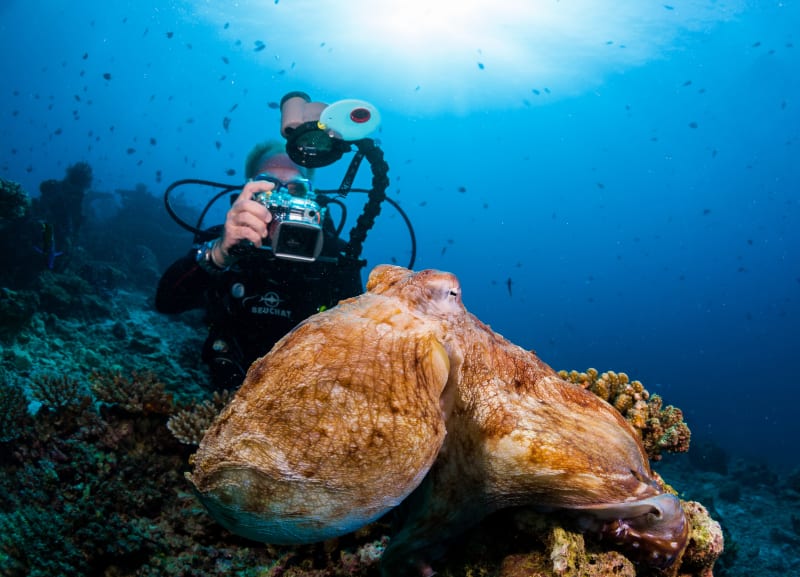That the Maldives is among the best diving destinations in the whole wide world is no longer a secret. The archipelago’s idyllic location in the Indian Ocean, coupled with its crystal-clear waters and an abundance of marine life, make it a** mecca for scuba divers** who come here annually for out-of-this-world underwater experiences.
Diving in the Maldives is done under the government’s watchful eyes, ensuring that all safety precautions are taken by tour organizers. Moreover, since the region’s underwater ecology is exceptionally delicate, divers are encouraged to take extra measures not to harm the aquatic life around the islands.
Whether you are preparing to dive for the first time or are an experienced diver, it is always beneficial to read about local diving laws before planning your trip.
To further help you in this endeavor, here are essential diving tips that will assist you in organizing the perfect diving holiday in the Maldives.

What to expect when diving in the Maldives
If you are wondering about the hullaballoo over diving in the Maldives, know that it offers some of the most fascinating opportunities to witness marine life in its natural habitat.
Besides an array of fishes and corals, divers in the Maldives can expect to swim next to manta rays, observe whale sharks from up close, and watch hammerheads go about their morning feeding ritual. Then there is the possibility to do a night dive with nurse sharks in Alimathaa, whereas daredevils get the chance to dive with tiger sharks.
Types of diving excursions
Diving in the Maldives is not limited to only what you will see in the ocean, but also how you explore the waters. While night dives have become standard globally, a few dive centers on the islands recently started offering blackwater diving. It’s a unique opportunity for experienced divers to appreciate the beauty of Maldivian aquatic life in a most dream-like fashion.
Reef dives are also pretty popular, and while there are fewer chances to see some of the more prominent inhabitants of the ocean, these dives are closer to the resorts. If you want to be girdled by a plethora of marine life, there is nothing better than taking a plunge in the plankton-rich channels between islands known as** kandus**.
Finally, adding drama to diving in the archipelago is a collection of wreck dive sites, a favorite with several divers. Boasting of both large and small wrecks, these sites are mini-ecosystems of their own and a pleasure to reconnoiter.
Where to book your diving trip
There are three different ways to book your diving tour. Most resorts have excellent dive centers with PADI approved instructors and extensive knowledge about nearby diving spots. However, booking through a retreat can be expensive. Still, they are ideal for first-timers who might want to start with a scuba diving course and perform dives in a swimming pool.
Returning hardcore divers, instead of going to the resorts, prefer to stay on inhabited islands. The** cost of dive excursions is significantly lower** here, and there is the possibility to check the prices with a couple of dive centers before making a final decision.
For a memorable diving holiday in the Maldives, look no further than a liveaboard. The vessels floating around the archipelago come with several advantages, from excellent accommodation and separate diving dhonis to multiple daily dives and the possibility of discovering** hard-to-reach diving spots**.

Diving essentials for the Maldives
If scuba diving is something that tickled your fancy while holidaying in the Maldives, you can easily take a course and learn the basics while staying at a resort. Both beginner and open water courses cost less than $1000 and vary in time from two to seven days, depending on your previous experience.
Documents
Established divers need to bring their logbook and diving certificate, without which tour operators will not take you on certain dives or else will treat you as a beginner. Moreover, you’ll need the logbook so that it can be updated and stamped with the dives you undertake in the Maldives.
Fitness
Dive centers are slightly lax about asking for a fitness certificate, but it is still good practice to have a checkup before your diving vacation. They do ask for a fitness self-declaration that you will have to fill and sign before the dive. Ensure you** do not hide your medical information** from the instructor, particularly any medication you are on.
Insurance
Diving insurance is compulsory in the Maldives and is typically included in the price of your first excursion. The insurance is valid throughout the country for one month.
One of the dangers of diving is decompression sickness. There are now four hyperbaric chambers in the country, at Baros, Kuramathi, Kuredu, and Kamdima, operated by trained medical staff.
Since the occasional diving accident does occur, divers are advised to take a special diving cover on top of their insurance policy. This cover, which can be bought upon arrival in the Maldives, includes transportation via speedboat or seaplane to a medical facility, otherwise quite costly.
Diving equipment
In theory, there is no need to bring any diving equipment to the Maldives. Everything from masks and underwater torches to cameras and dive computers is readily available to rent.
However, it is recommended to get some of your equipment such as wetsuit, dive shoes, regulator, buoyancy control device, dive computer, underwater camera, and possibly even fins for comfort and to reduce overall costs by $20 to $30 per dive.

Money-saving tip
A single dive excursion in the Maldives, including weights, tank rental, and necessary equipment, costs upward of $120 plus taxes. This usually also incorporates the boat ride.
However, if you plan to stay for long and wish to go on multiple dives, it is best to book a package for a specific number of outings. When doing so, you can bargain a little on the total cost, possibly asking the dive center to include some of the extra equipment cost in the original price.
Limitations and precautions
As is the case with diving anywhere in the world, it is up to divers to take precautions when in the water. These include not feeding or touching the fish, no stepping on corals, and leaving the underwater ecosystem in the same state for others to enjoy.
To keep diving in check, the Maldivian government has specific rules that should be followed by divers and dive centers alike. These include;
-
No diving below a depth of 18 meters for Open Water Diving
-
No diving below a depth of 30 meters for Advanced Open Water Diving
-
Safety stop during resurfacing at 5 meters for 3 minutes
-
Compulsory use of dive computers
-
No diving up to 24 hours before a flight
-
No solo dives
-
A maximum time of one hour per dive
N.B.:* all information is correct as of post publication date, and prices are subjected to change.*
